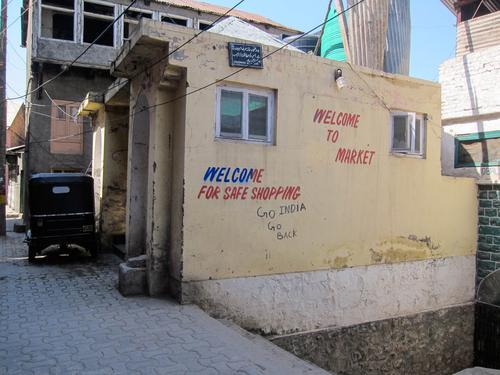当前位置:
X-MOL 学术
›
American Ethnologist
›
论文详情
Our official English website, www.x-mol.net, welcomes your
feedback! (Note: you will need to create a separate account there.)
Trust amid “trust deficit”
American Ethnologist ( IF 1.9 ) Pub Date : 2021-02-19 , DOI: 10.1111/amet.12987 ADITI SARAF 1
American Ethnologist ( IF 1.9 ) Pub Date : 2021-02-19 , DOI: 10.1111/amet.12987 ADITI SARAF 1
Affiliation

|
In Kashmir, traders used the term “trust deficit” both to refer to the lack of faith in the Indian state, and to the mistrust that tinged credit transactions within their own community. Although trust‐based informal credit had been undermined by political violence and mistrust, it remained the basis of capital and commodity circulation in the marketplace, challenging normative assumptions of trust as a prerequisite for credit. The concept of reflective improvidence illuminates how traders maintained economic relations amid violence and volatility by deviating from traditional practices of forecast that are commonly drawn on to determine credit transactions. Instead, the open temporal dynamic between trust and credit emerged as a site where traders transformed commercial and political relations in the flux of war and uncertain futures. Traders forged collectivities that, however tenuous, resisted the communalized narratives that sought to frame the Kashmir conflict. [violence, commerce, trust, credit, frontiers, war economy, Srinagar, Kashmir]
中文翻译:

“信任赤字”中的信任
在克什米尔,交易者使用“信任赤字”一词既指对印度国家的不信任,也指在其本国社区内进行信用交易的不信任感。尽管基于信任的非正式信贷因政治暴力和不信任而受到破坏,但它仍然是市场中资本和商品流通的基础,挑战了将信任作为信贷前提的规范性假设。反思即兴的概念通过偏离通常用于确定信贷交易的传统预测方法,阐明交易者如何在暴力和动荡中保持经济关系。取而代之的是,信任与信用之间的开放性的时间动态成为一个场所,交易者在战争和不确定的未来中改变着商业和政治关系。贸易商伪造了集体,尽管脆弱,但他们抵制了试图勾勒克什米尔冲突的集体化叙述。[暴力,商业,信任,信用,边疆,战争经济,斯利那加,克什米尔]
更新日期:2021-02-19
中文翻译:

“信任赤字”中的信任
在克什米尔,交易者使用“信任赤字”一词既指对印度国家的不信任,也指在其本国社区内进行信用交易的不信任感。尽管基于信任的非正式信贷因政治暴力和不信任而受到破坏,但它仍然是市场中资本和商品流通的基础,挑战了将信任作为信贷前提的规范性假设。反思即兴的概念通过偏离通常用于确定信贷交易的传统预测方法,阐明交易者如何在暴力和动荡中保持经济关系。取而代之的是,信任与信用之间的开放性的时间动态成为一个场所,交易者在战争和不确定的未来中改变着商业和政治关系。贸易商伪造了集体,尽管脆弱,但他们抵制了试图勾勒克什米尔冲突的集体化叙述。[暴力,商业,信任,信用,边疆,战争经济,斯利那加,克什米尔]











































 京公网安备 11010802027423号
京公网安备 11010802027423号